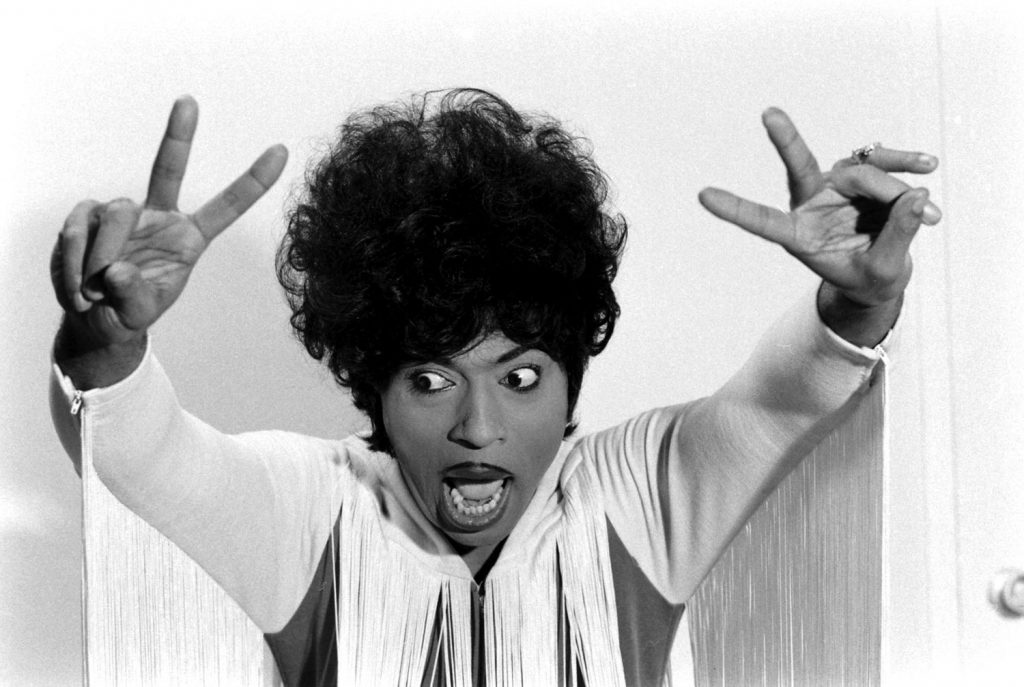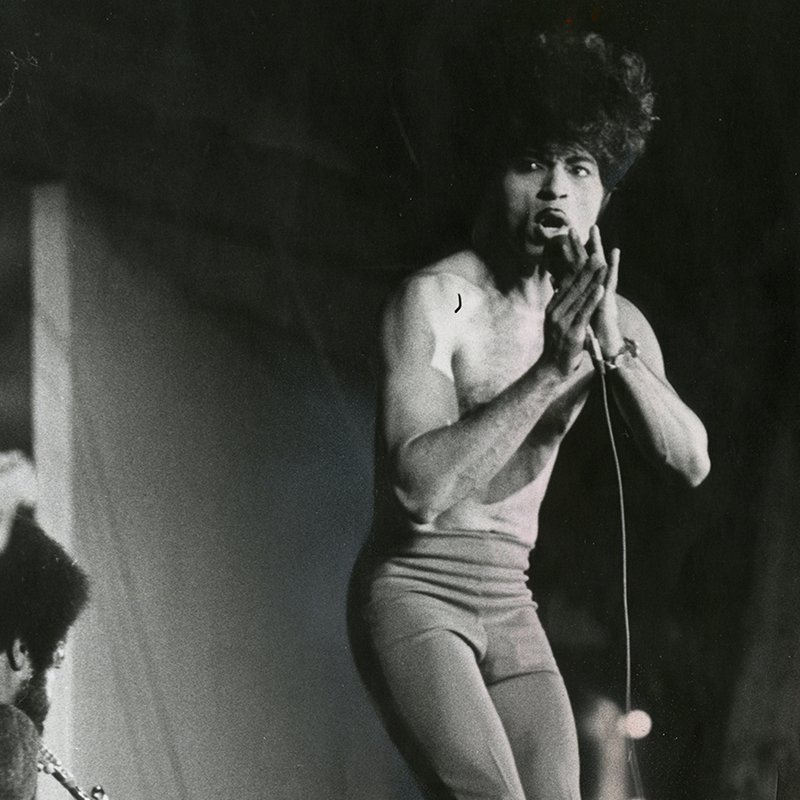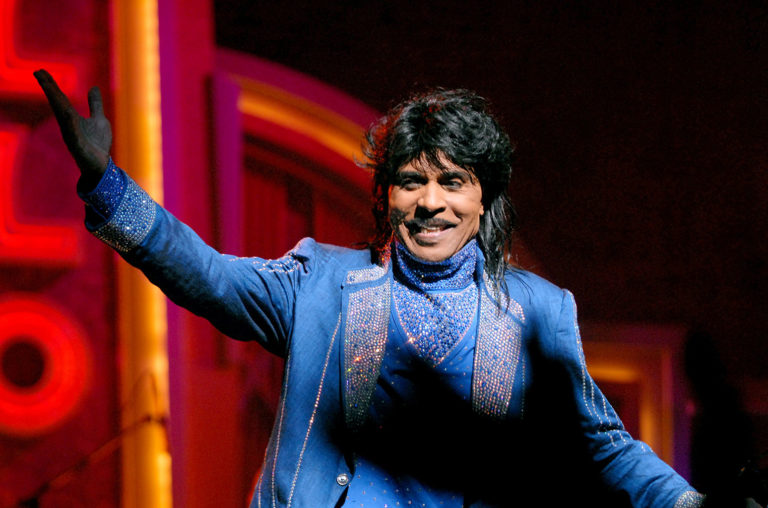
I’ve been mourning the loss of Little Richard for some years now. That may sound like a pretty morbid exercise, but in my heart I had been feeling a deep sense that we may not have him on this earthly plane for long. In fact, I was oftentimes surprised — happily so — that he was still with us, but there remained this looming feeling that we would lose him . . . not in the sense that he was on borrowed time, but that we, the collective, were on borrowed time.
We didn’t really deserve Little Richard. Why do I say that? Because we — and by we, I mean America — didn’t know how to treat him. What we mistreat, misuse, undervalue, and take advantage of, we surely do not deserve. So I started posting more about Richard in the last few years. Appreciation posts, birthday posts, and mostly taking organizations to task when they would “honor” Richard in a way that was always much too modest, much too small, much too inaccurate.
There is no bush that is beat around more than that of the significance of Little Richard.
It’s more than the simple fact that America would sooner shoot off its proverbial left nut before calling him “king”. But let’s stay there for a moment.
Here is a sampling of the headlines around his passing:
“Little Richard, Founding Father of Rock Who Broke Musical Barriers, Dead at 87” (Rolling Stone)
“Legendary Rock and Roll Musician Little Richard Died of Bone Cancer at 87” (People)
“Little Richard, Flamboyant Wild Man of Rock ’n’ Roll, Dies at 87” (The New York Times)
“Little Richard, a flamboyant architect of rock ’n’ roll, is dead at 87” (CNN)
“Little Richard, outsized founding father of rock music, dies at 87” (USA Today)
And they get worse:
“Little Richard, ’Tutti Frutti’ and ’Good Golly Miss Molly’ singer, dead at 87” (FOX News)
“Little Richard, piano-pounding music icon, dies at 87” (NBC)
“Seminal rocker Little Richard, singer of classic ‘Tutti Frutti’ and ‘Lucille,’ dead at 87” (New York Daily News)
We Black folks have this saying: “They’ll call you everything but a child of God.” America and the white world at large have made the devaluing of Black people the nucleus of its function and advancement, and this dehumanization takes on many brutal forms: enslavement, disenfranchisement, rape, murder, separation, and more.
Other prime tenets of human devaluing of Black people are psychological and linguistic in nature. The evolution of the verbal regard for Black people in America is uniquely traumatic. From three-fifths human to nigger to jigaboo to coon to monkey to gal or boy and all the rest, they give context to not only the saying that, “They’ll call you everything but a child of God,” but the centuries-long demand, through the struggle and resistance of Black people, that you will indeed respect us, starting with our title.
“If we were made in his image, then call us by our names.” (E.B.)
“Don’t you be calling me out my name.” (Queen Latifah)
American journalists, critics, and mass controllers and manipulators of the cultural narrative have made it their full-time business to call Little Richard everything but The King. It is a title they simply cannot bear to hear ring back in their own ears. And any lie you tell yourself enough times, will eventually sound like the truth. And yet, we know that while yes, Richard is an architect, a founder, a bedrock, an influencer, an innovator, and any other synonym for these things, he was also . . . The King. And until we do right by Richard, the rest won’t matter.
While his Blackness is fundamentally central to this refusal, homophobia also plays a major role. Richard is the prototype of all those who went on to blur or defy the alpha or hypermasculine lines of gender expression. From James Brown to Jimi Hendrix to Michael Jackson to Prince to Grace Jones and on and on. But he also did this for David Bowie, Steven Tyler, Mick Jagger, Lady Gaga, Kurt Cobain, Annie Lennox, Led Zeppelin, and every punk and hair band known to humanity. Yet, Richard’s unabashed queerness would constantly serve to caricaturize him and deflate his undeniable essentiality to everything we call American music. He is not only the originator of rock ’n’ roll, but the pioneering father of androgyny in the American popular music artist. The price he paid for his authenticity, every artist to come behind him owes back to him — with interest.

Little Richard was and remains the apex of rock ’n’ roll. And he rightfully showed outrage for that creative pinnacle being given to an unmeritable white man. An imitator. A person whose artistry depended solely on what he could extract from the black artists whose work he unapologetically stole and mocked.
Crowning this white man as king was an act that was viciously, cruelly, and disrespectfully thrown in Richard’s face for decades. As a child, I distinctly remember Little Richard being on a celebrity episode of Family Feud in the late 1980s. One of the categories was “Phrases Associated With Elvis”, or something along those lines. And one of the answers on the board was “The King”. I remember the collective rage in my household around this. It was a purposeful and deliberate act of evil and disrespect, and a cruel and racist jest toward Little Richard. And this is just one of hundreds upon hundreds of slights that Richard endured over his lifetime.
Which is why it truly dismays me that white society views Richard’s bold proclamation of his true position in the landscape of American music as something brash, brazen, or arrogant, as reflected in almost every interview a white person conducted with Richard or in all of today’s headlines which make the point to emphasize that his rightful titles are “self-proclaimed” — as if to say this is not the view of the masses, but rather an uppity depiction of his own delusions.
But when have Black people in this country ever had the luxury of not having to proclaim our own humanity, let alone our own greatness? From “Ain’t I a Woman?” to “I Am a Man” to Black Lives Matter, Black people have always had to defend, demand, and safeguard our collective and individual legacies against white supremacy. Whether by roasting a myriad of rock figures on the fly, or by taking time out of an engagement of honors to hold significant space for himself by reminding a room full of white people that but not for him, they would not exist in their current capacities, Richard gave himself the glory that was refused him, by any means necessary. Little Richard’s unrepentant bearing of the truth is, like Malcolm X’s or James Baldwin’s, a supremely valiant action that should be honored right along with his musical inventions, ingenuity, and trailblazing.
We didn’t really deserve Little Richard.

Steven Van Zandt of Bruce Springsteen’s E Street Band was quoted as saying, “Little Richard opens his mouth, and out comes liberation.” This is an important observation. In Blues People, Amiri Baraka writes of the slave citizen, “How did it do this? What was so powerful and desperate in the music that guaranteed its continued existence? But as I began to get into the history of the music, I found that this was impossible without, at the same time, getting deeper into the history of the people. That it was the history of the Afro-American people as text, as tale, as story, as exposition narrative, or what have you, that the music was the score, the actually expressed creative orchestration, reflection of Afro-American life, our words, the libretto, to those actual, lived lives. That the music was an orchestrated, vocalized, hummed, chanted, blown, scatted corollary confirmation of the history. That the music was explaining the history as the history was explaining the music. And that both were expressions and reflections of the people!”
“Black people lived right by the railroad tracks and the train would shake their houses at night. I would hear it as a boy and I thought: I’m gonna make a song that sounds like that.” (Little Richard)
When they steal the credit for our music, when they position imposters as inventors, when they take all measures possible to dethrone us, it is a dishonor to our ancestors. It is an erasure of our history. As my son recently proclaimed to me, “Every note has a story.” Our music, our sound, and its evolution is inextricably tied to our history, our lived experiences, and our individual and collective desires. This is true for all black music.
By most all definitions, kingship is a birthright. Richard’s ancestors of blues and gospel bestowed rock ’n’ roll to him. The only delusions of grandeur are from those who wish it simply were not so.
Long live The King of Rock ’n’ Roll, Richard Wayne Penniman . . . the One and Only Little Richard.
